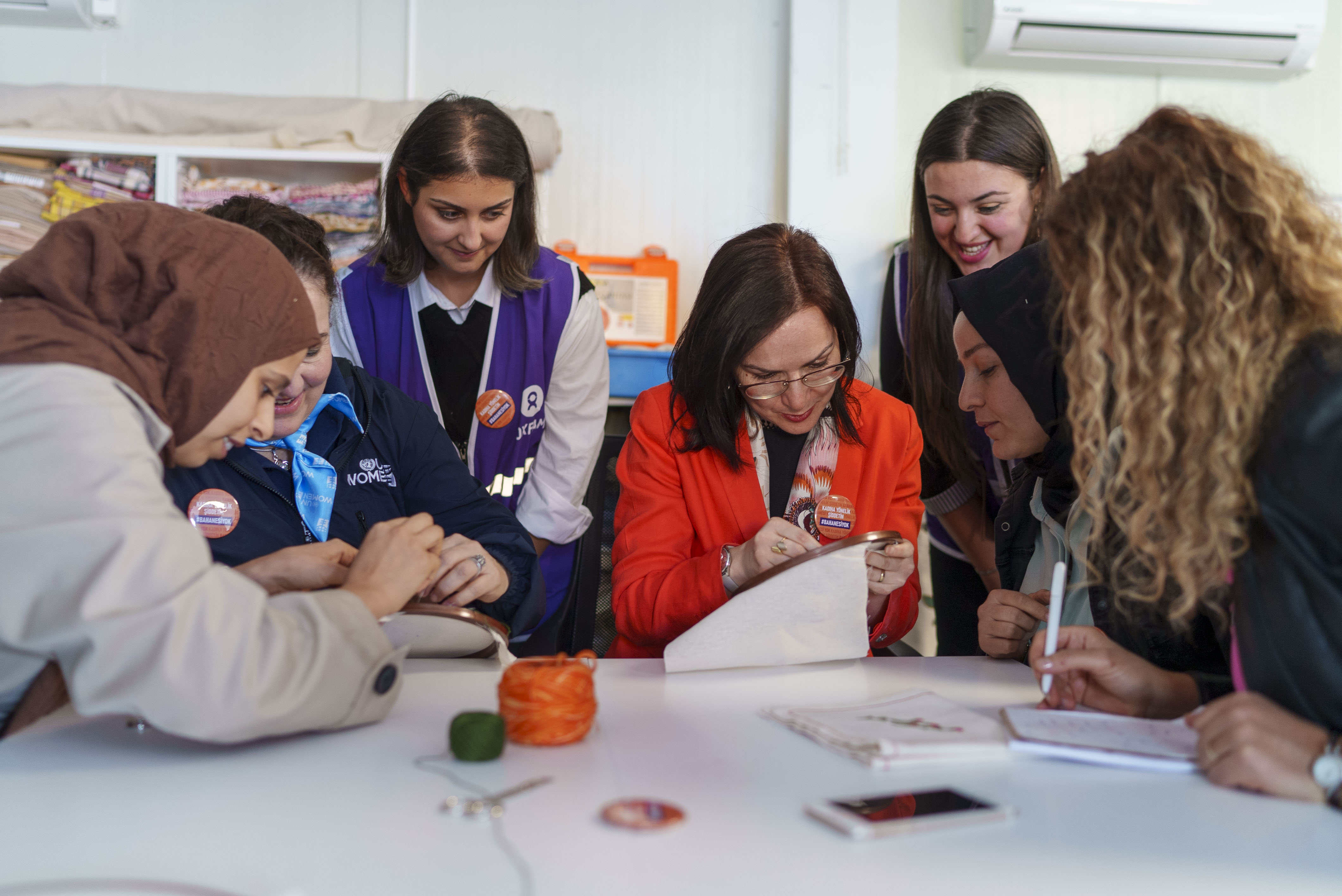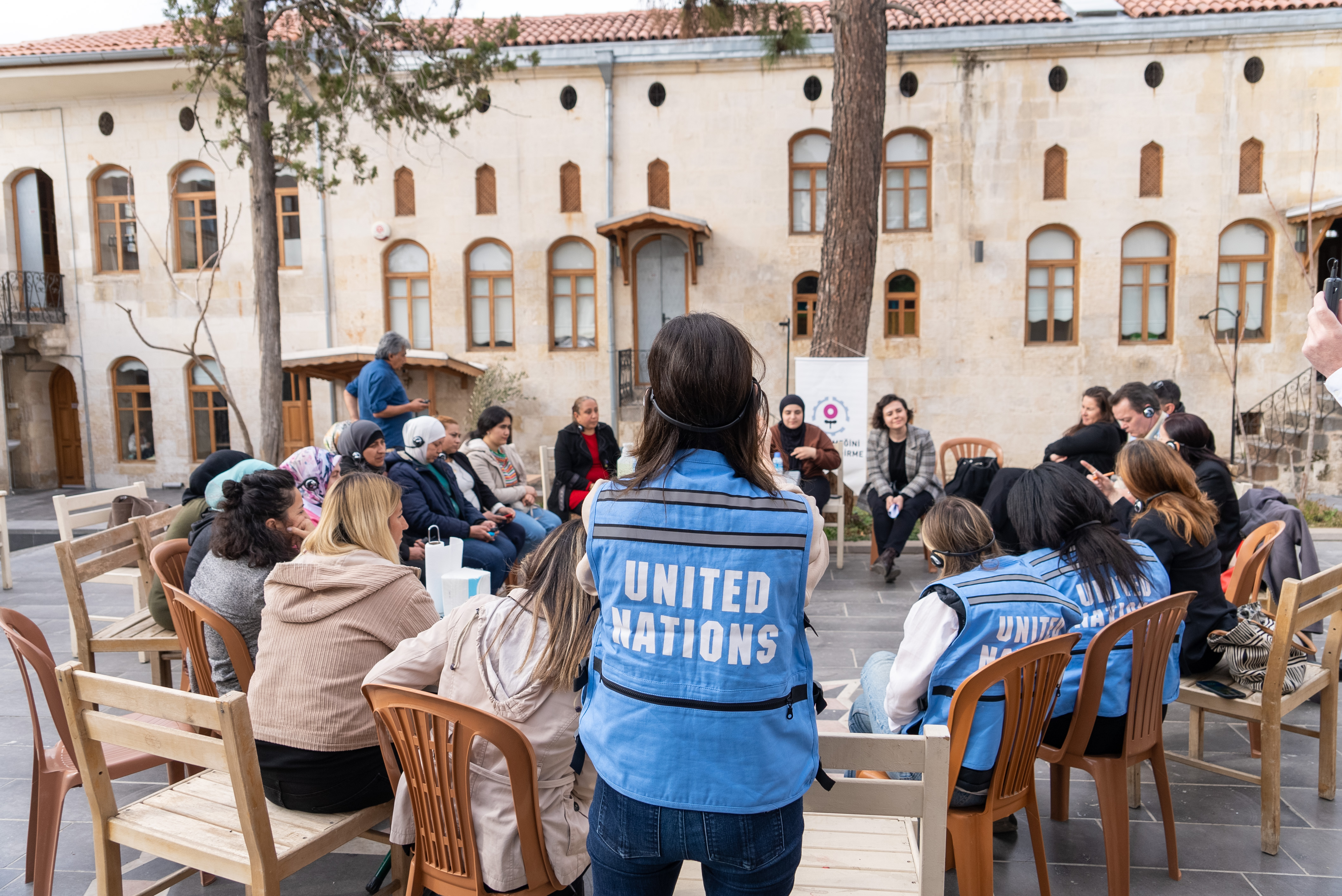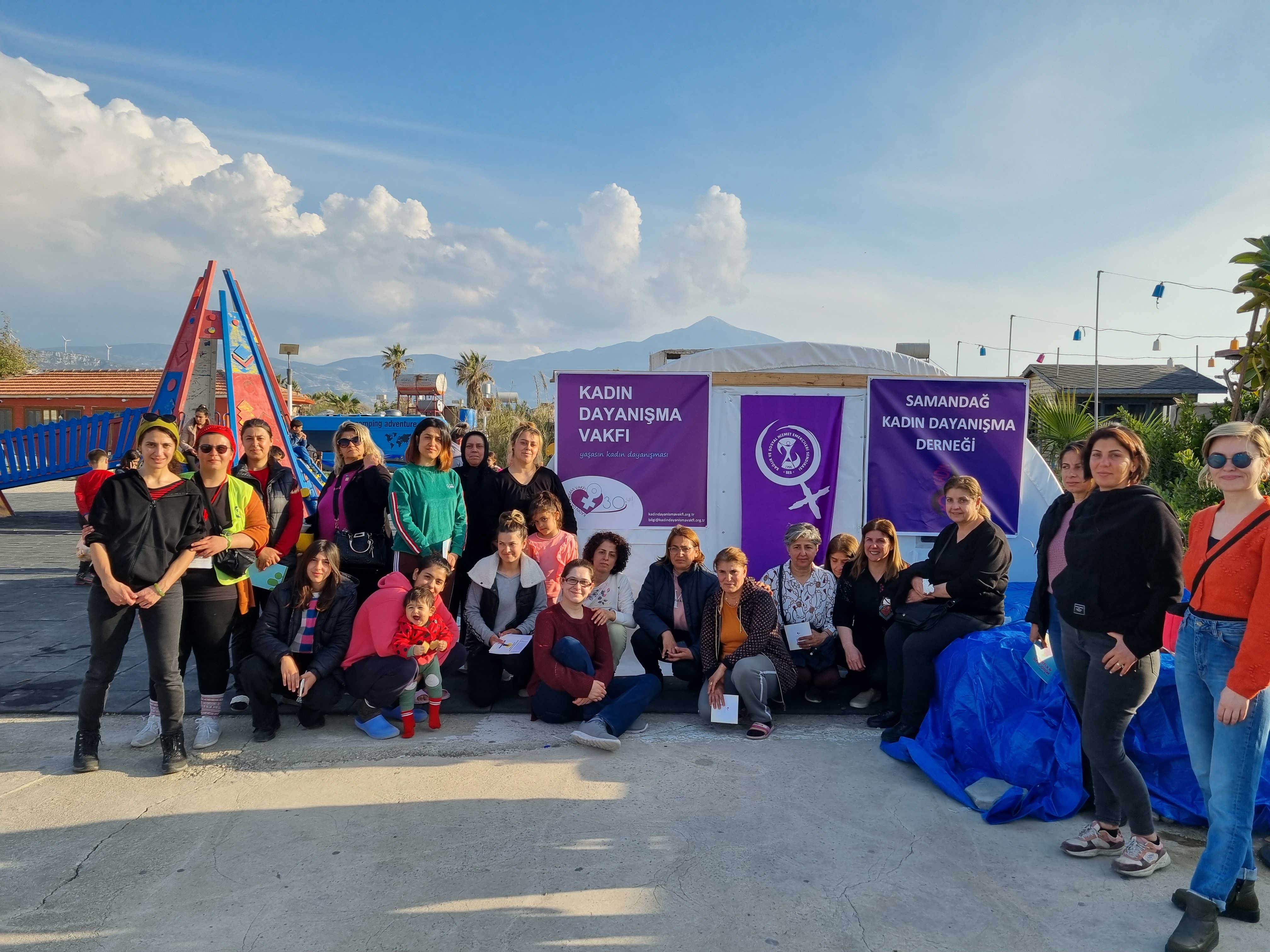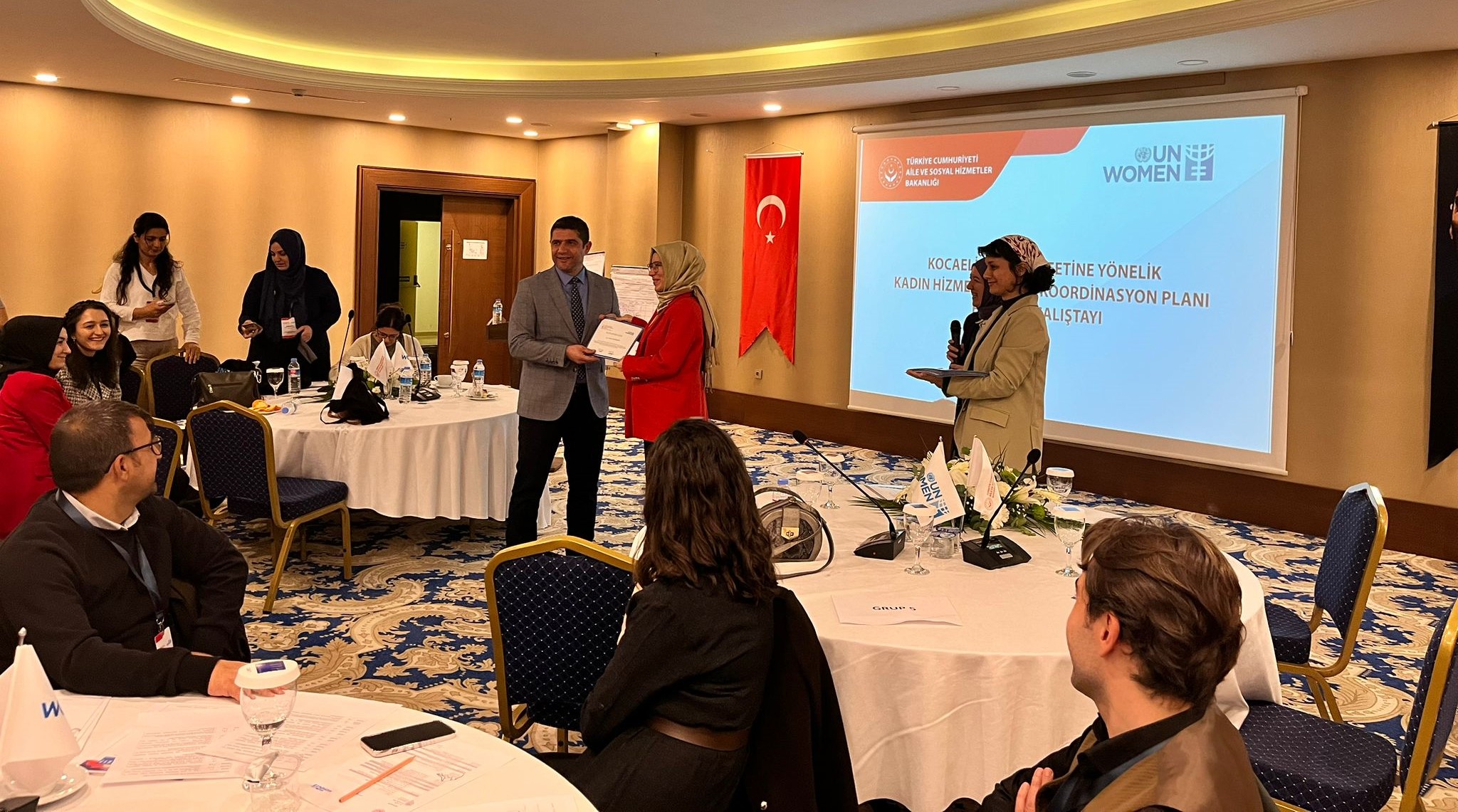A year aftermath: UN Women’s response empowers and supports women and girls in earthquake-affected regions
Date:

On February 6th, 2023, Türkiye was struck by two earthquakes – the largest to hit the country in the last century. The most affected were 11 provinces in the South-East - home to 14 million people, half of whom are women and girls. More than 50,000 lives were lost and many others were injured. In the aftermath of the earthquakes, UN Women swiftly responded to meet the lifesaving needs of women and girls.
UN Women’s response aims to ensure that women and girls impacted by the disaster are provided with multisectoral services and support for their urgent needs and recovery, and opportunities for their agency in the humanitarian response. To achieve this goal, UN Women worked with numerous partners – including ministries, local authorities, communities, civil society organizations (CSOs), sister UN agencies and the private sector – through a two-pronged approach:
- Supporting the mainstreaming of gender and women's leadership in the coordination, planning, prioritization and financing of humanitarian response and recovery efforts;
- Direct support to affected women, and government and civil society partners based on their identified needs.

In line with its triple mandate and technical expertise, UN Women worked to ensure that all sectors have information, data, and concrete intervention tools to address the specific needs of women and girls. UN Women convened 17 sectors and working groups, comprising UN agencies and CSOs, through the Women’s Empowerment in Humanitarian Action Working Group and offered technical and advisory assistance based on IASC commitments on gender equality and the empowerment of women and girls in humanitarian settings. To increase the availability of gender data and analyses, UN Women carried out and disseminated several assessments and collaborated with UN partners on different inter-agency surveys.

An important focus has been localization and support to women's civil society organizations which play critical role as first responders and advocates for the rights of women. UN Women facilitated collaboration between humanitarian sector groups and over 60 local women’s CSOs to enable localized gender-equitable outcomes, prioritizing at risk and vulnerable women. UN Women channeled in-kind contributions, provided financial and programmatic support to 10 CSOs as they worked with women and girls in the field. Professionals and volunteers from 43 CSOs gained knowledge on psychological first aid with a gender perspective. Through its CSO partners, UN Women reached over 5500 women and girls with legal and psycho-social counselling, awareness raising on safety and protection, skills development, and essential hygiene items.

As the risk of violence against women increases after crises, UN Women supported national partners to provide uninterrupted and continuous protective and preventive services. This resulted in: Enhanced response capacities and gender knowledge of law enforcement officials, social workers and local lawyers; Refurbished Violence Prevention and Monitoring Centers in Hatay and Kahramanmaraş and initiated collaboration with Ministry of Family and Social Services for the reconstruction of damaged women’s shelters; Designed local action plans for service provision in crisis; First of its kind Emergency Coordination Plan for Women Services in Kocaeli as disaster preparedness measure. Women’s access to justice was increased by enhancing their post-earthquake legal literacy in partnership with the Union of Turkish Bar Associations.
UN Women’s private sector partners took an active role in the response and recovery efforts. The gender-responsive settlement model developed by UN Women and implemented in collaboration with Koç Holding emphasizes the integration of a gender lens in settlement design, and reconstruction efforts while prioritizing women's empowerment and leadership. Two Women’s Empowerment Hubs were established in temporary settlements in partnership with the women’s CSO KEDV, targeting over 5000 women and girls with services, skills development and support to empower them to be resilient and self-reliant. UN Women mobilized numerous private sector partners who helped more than 30,000 women and girls to receive clothing and personal hygiene items, and enabled women entrepreneurs and cooperatives from the affected region to gain access to Türkiye’s biggest e-commerce platform and sell their products as corporate gifts.
One year after the earthquakes, UN Women’s commitment to support women and girls on the road to recovery and healing remains as strong as ever.